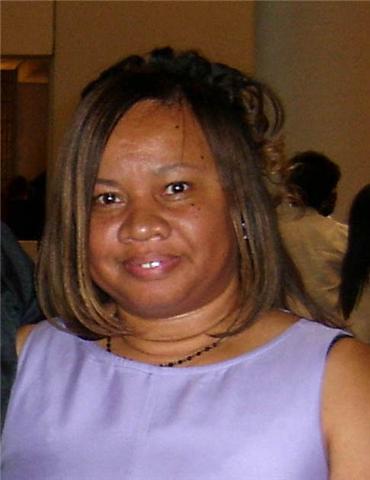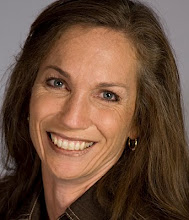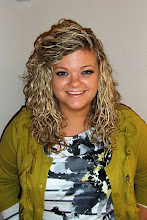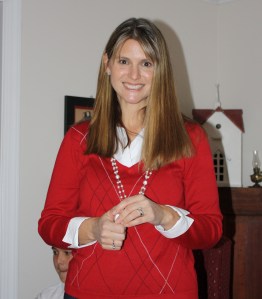If you’ve done any research into special needs, you’ve probably been surprised by just how many different disorders and conditions can affect speech and language development. Like so many parents of special needs kids, Bonnie Korman and her husband Mark had never heard of Fragile X syndrome before their two boys were diagnosed with it. Fragile X can cause a wide range of symptoms, from communication issues to sensory overload. It’s also closely linked to autism. Today, Bonnie Korman is sharing her advice about parenting special needs kids and guiding them through the ins and outs of life. She’s also offered her tips on preparing kids for the back-to-school season, and notes that it’s important to customize your back-to-school preparation to your child’s unique needs. For more on Fragile X syndrome and the Korman Family’s story, head on over to Bonnie’s blog at The Fragile X Files.
An Interview with Rita Lorraine Hubbard – Special Needs Teacher
InterviewsThis week we’re speaking with Rita Lorraine Hubbard, a former special education teacher with over 20 years of experience working with special needs children. Rita is also a children’s book author and founder of the children’s book review website, Picture Book Depot. Check out Rita’s writing at “Rita Writes History.” As if that weren’t enough to keep her busy, Rita Lorraine Hubbard also specializes in teaching sign language to new moms and babies. She stresses the importance of encouraging communication at an early age to facilitate academic progress, as well as social and emotional development. Today, Rita has shared a glimpse into the world of special ed classrooms. She discusses the importance of parental involvement in the classroom, as well as a typical day for a special ed student.
An Interview with Lori Steed Sortino
InterviewsThis week, Lori Steed Sortino shares her experiences of raising her son, Daniel, who is Deaf. Lori’s blog, Deaf Son, Hearing Mother, emphasizes the positives. Daniel opened Lori’s eyes to a new world of possibilities. Despite the obstacles in his way, Daniel thrived and later became a successful college student. However, the journey wasn’t easy. Lori and her now ex-husband Joe fought to become advocates for their child and faced a great deal of resistance from the school district. While Daniel’s teachers wanted to help him, they were stuck in a system that was unresponsive to Daniel’s needs because of budget constraints. After her difficult experiences, Lori was inspired to work with a parent advocacy group to ensure that the needs of other Deaf children are being met. She emphasizes how critical it is for parents to join a network of support.
An Interview with Jenna Rayburn, SLP
InterviewsTeachers are so important in a child’s life. A child will often cherish the memories of a really great teacher for years after they graduate. Kids with speech disorders who work with a speech-language pathologist (SLP) are no different. SLPs try to make speech therapy fun and exciting to help the child learn speech and language skills without it feeling like a chore.
Kids who enter certified SLP Jenna Rayburn’s speech therapy room are likely to play an articulation-oriented game of Candy Land, work with magnets to create stories and learn proper sentence structure, and play a whole host of other innovative games while reaching their speech therapy goals. They can even work on their articulation skills while playing Twister. Jenna Rayburn uses her incredible creativity to turn children’s games into speech therapy lessons, and she shares her ideas on her blog, Speech Room News. Jenna loves incorporating both classic games and new technology into her lesson plans. Read on to find out Jenna’s tips for parents who are new to speech therapy and those who are looking for fun ways to do at-home speech therapy exercises.
An Interview with Kim Wilson
InterviewsThis week we’re interviewing Kim Wilson, who writes the blog Celebrating Inchstones. Kim has four kids, the youngest of whom has mitochondrial myopathy. This is a disease caused by a genetic mutation that affects the mitochondria in the body’s cells. As a result, Asa has trouble producing the sounds needed to make words. However, Asa is able to understand much of what is said to him, and he can make his wishes known in other ways. In our interview, Kim discusses her son’s speech therapy techniques and shares her experience navigating the special education process.
An Interview with Gavin Bollard
InterviewsIn 2006, Gavin Bollard’s eldest son was diagnosed with Asperger’s syndrome. When Gavin began researching Asperger’s, he realized that much of what he read about it applied to himself. Subsequently, Gavin was also diagnosed with Asperger’s. (Gavin had worked with a speech therapist as a child, despite not being diagnosed until adulthood.) Later, Gavin’s younger son was also found to have autism spectrum disorder (ASD). Gavin Bollard blogs about his family’s life with Asperger’s syndrome at Life with Asperger’s. In particular, Gavin emphasizes the importance of celebrating every child’s uniqueness, whether or not they are diagnosed with ASD. Read on to find Gavin’s tips for parents who are new to the Individualized Education Program (IEP) process and his advice on helping children with Asperger’s.
An Interview with Jerry Turning
InterviewsToday we’re featuring an interview with Jerry Turning, autism dad extraordinaire and writer of Bacon and Juice Boxes: Our Life With Autism. Jerry’s straight talking blog about his son, Eric, reflects the thoughts of countless other parents with children with autism: fear for their child’s future, anger at societal reactions to autism, but also inspiration, pride, and a whole lotta love. In our interview, Jerry discusses his acceptance of his son’s diagnosis, how he relearned the value of pure and simple play, and how his family works to encourage communication with Eric.
An Interview with Jake’s Journey – A Mom’s Experience with Apraxia
InterviewsThis week we’re featuring Tori S. of Jake’s Journey to Be a Little Man, a blog that chronicles the life of Tori’s son, Jake. Jake has apraxia, which is a motor speech disorder that interferes with his ability to form individual sounds and words. Apraxia is not caused by poor oral muscle development, but rather by a miscommunication between the brain and the muscles. So while Jake understands what he wants to say, his brain has trouble signaling his muscles to make those sounds. In our interview, Tori discusses the home-based speech therapy techniques that she uses to help Jake become more verbal.
An Interview with Gina Badalaty – Special Needs Mom
InterviewsThis week, we’re featuring Gina Badalaty of Mom-Blog. Gina has been blogging about special needs since 2002. Her focus is on raising awareness and helping other parents of special needs kids. Gina herself has two special needs children: Amelia has a rare form of Down syndrome and Zoe has autism spectrum disorder (ASD). In our interview, Gina discusses the many speech therapy techniques she has used with both of her daughters – the ones that worked and the ones that didn’t. While not all speech therapy treatments helped Zoe and Amelia, it’s important to remember that every child is unique. Gina also pointed out that treatment techniques are always evolving. The number one lesson from Gina’s story is to keep trying until you find something that helps, and to never let your child’s disability get in the way of her happiness.









